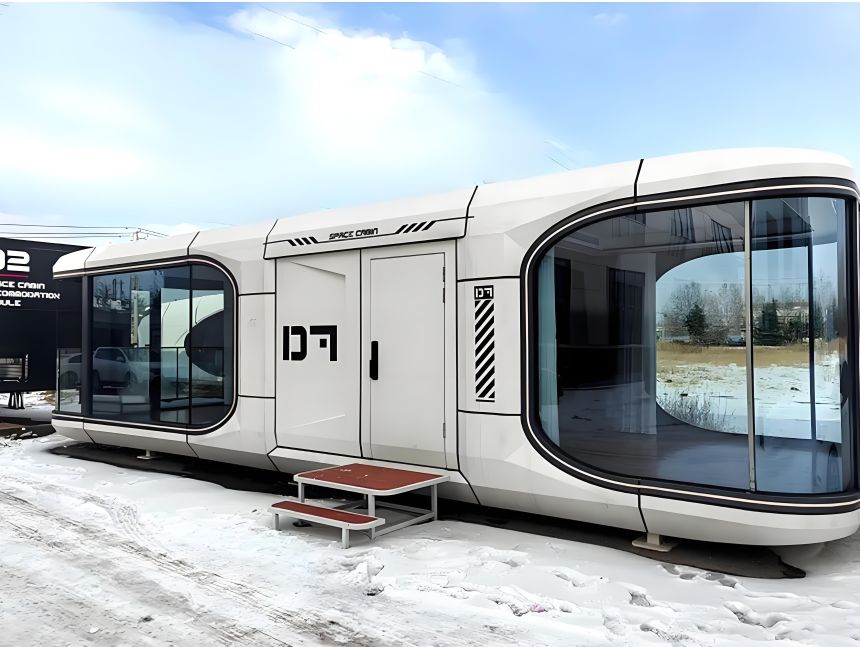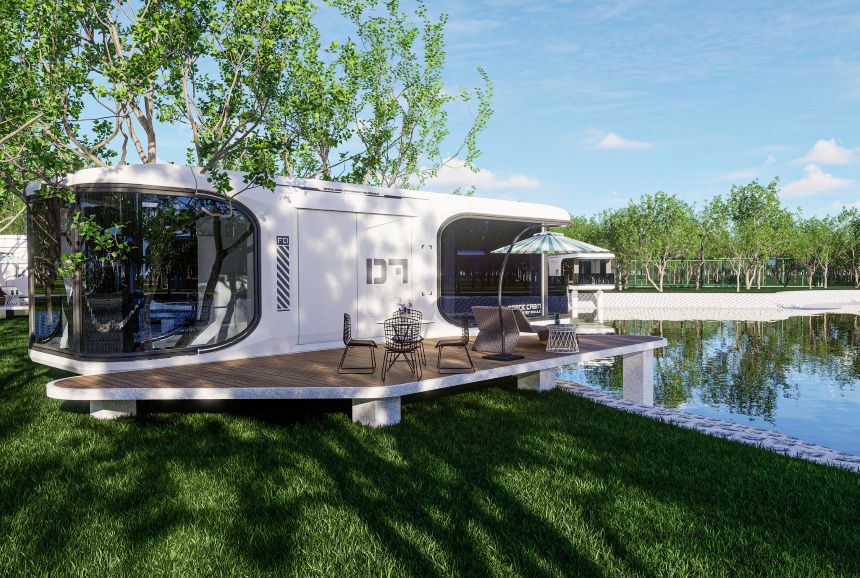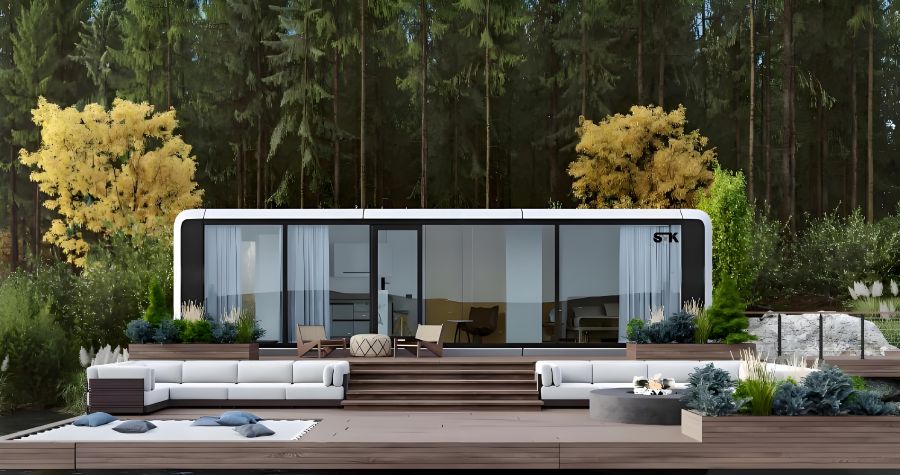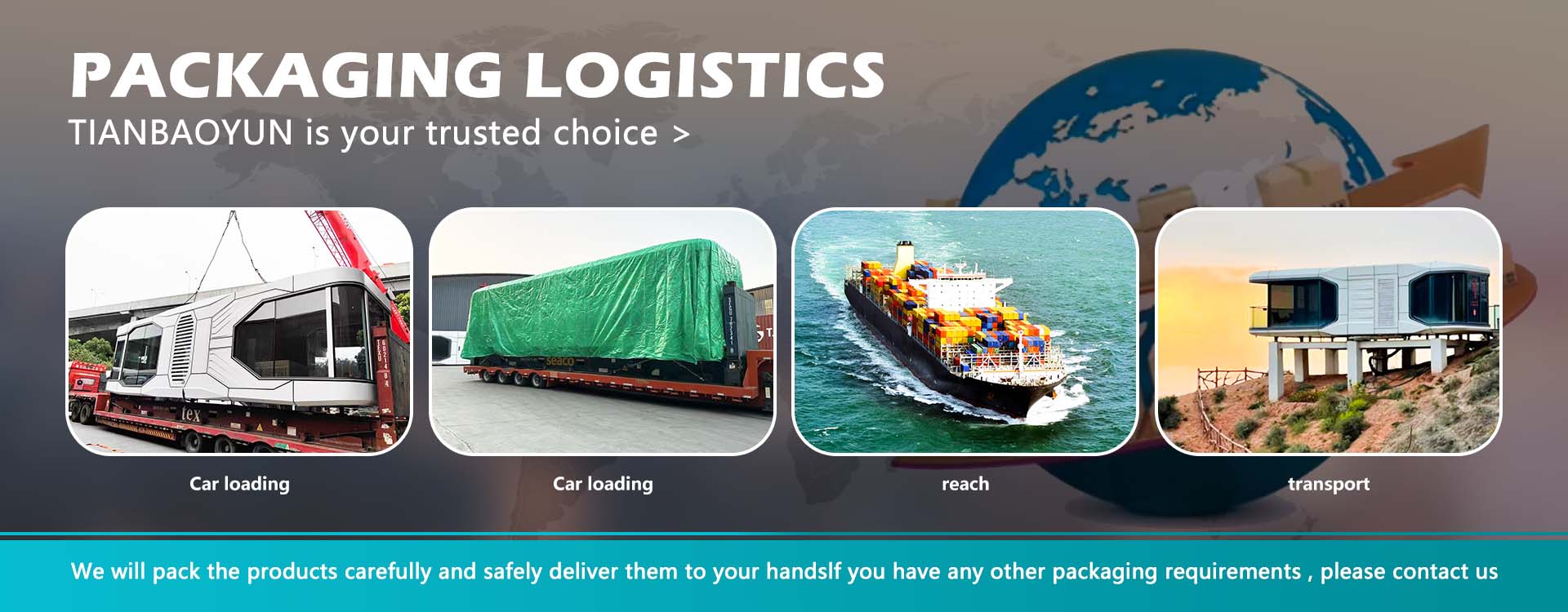In recent years, the concept of capsule homes has emerged as a bold and unconventional solution for modern urban living. Compact, minimalist, and strikingly postmodern, these unique structures represent a fresh architectural trend. However, buying a capsule home isn’t always straightforward — it’s a market filled with both opportunities and challenges.
To navigate this niche effectively, it’s important to look beyond their distinctive appearance and understand the practical advantages and limitations they offer. Let’s explore the intriguing world of capsule houses and discover what makes this innovative living style both appealing and complex.

What Are the Advantages of a Capsule House?
Capsule houses offer a range of unique benefits that make them an appealing choice for modern, forward-thinking homeowners. Here’s a closer look at what makes them stand out:
1. Eco-Friendly and Sustainable
Many capsule homes are designed with sustainability in mind. Built off-site in controlled environments, their production leaves a smaller carbon footprint compared to traditional housing. From eco-certified building materials to advanced insulation and energy-efficient lighting systems, these homes prioritize environmentally responsible design and promote a greener way of living.
2. Embracing Minimalism
With their compact layouts, capsule homes naturally encourage a minimalist lifestyle. This means focusing on what’s essential, eliminating clutter, and embracing simplicity. Minimalism isn’t just a design trend — it’s a practical, thoughtful way of living that values quality over quantity, turning small spaces into functional, elegant environments.
3. Affordable Living
One of the most appealing aspects of a capsule home is its affordability. Thanks to their smaller size and efficient use of materials, capsule homes cost significantly less than traditional properties. They provide a smart, budget-friendly option for first-time buyers or anyone looking to invest in a home without the weight of heavy mortgages.
4. Smart Space Optimization
Capsule homes are designed to make the most of limited space. Every square meter is carefully planned to maximize functionality and comfort. This makes them ideal for densely populated urban areas, contributing to sustainable city development while offering practical living solutions in compact spaces.
5. Portable and Flexible
Most capsule houses are modular and lightweight, making them easy to transport and relocate. This mobility is perfect for people with dynamic lifestyles — whether moving for work, travel, or personal reasons. It’s a housing option that offers freedom and adaptability in a world that’s constantly on the move.

What Are the Drawbacks of a Capsule House?
While capsule homes offer plenty of advantages, they’re not without their limitations. Here’s a breakdown of some common challenges associated with this type of living space:
1. Limited Privacy
Most capsule homes feature open-plan layouts designed to maximize space efficiency. However, this often comes at the expense of privacy. With minimal room divisions and partitions, it can feel exposed and uncomfortable for those who value personal space and quiet corners.
2. Uncertain Resale Value
Despite their growing popularity, capsule homes may still face hurdles in the property market. Not every buyer is drawn to compact, unconventional living spaces, which can make reselling or renting out your unit more difficult. Traditional, roomier homes often hold broader appeal, meaning a capsule house might not deliver strong resale profits down the line.
3. Limited Customization Options
Due to their compact size and pre-designed layouts, customization options for capsule homes can be quite limited. Adding extra features or making significant layout changes is often impractical and might make the space feel even more cramped. This can be a dealbreaker for homeowners who enjoy personalizing their living environment.
4. Building Codes and Zoning Restrictions
Another challenge is navigating local building codes and zoning regulations. Not every region is equipped to support capsule homes, and securing permits for installation can be complex. In some cases, you may need to rethink your design or adjust your plans entirely to meet area-specific guidelines.
5. Space Constraints for Larger Families
While capsule homes excel at efficient space use, they may still feel restrictive for larger families or those accustomed to more spacious living. A family of five, for example, would likely face significant lifestyle adjustments to comfortably fit within such a compact footprint. Though it’s possible, compromises on storage, privacy, and personal space would need to be made.

Tips for Choosing the Right Capsule Home
If you’re considering investing in a capsule home, here are some practical tips to help you make the right decision:
1. Identify Key Features and Priorities
Before making a purchase, take time to understand what truly matters in a capsule home. Assess critical factors like the quality of construction materials, sustainability credentials, energy efficiency, total purchase and setup costs, required tools for assembly, unit size and capacity, as well as shipping and installation requirements. Knowing these essentials ensures you’re selecting a home that aligns with your lifestyle and budget.
2. Decide Between Single Purchase or Bulk Order
Are you buying a capsule home for personal use, or considering a bulk order for resale or business? For most homeowners, a single-unit purchase makes the most sense. However, if you’re planning to invest in multiple units — whether for a rental business, property development, or community project — bulk orders often offer cost savings and enhanced customization options. In this case, be sure to partner with a reputable supplier and confirm that the designs comply with local building regulations.
3. Do Your Research and Plan Ahead
Successful capsule home ownership starts with thorough research. Secure your land arrangements, familiarize yourself with local zoning laws, and consult with experienced builders or suppliers. It’s also wise to assess potential returns on investment by studying market trends and resale opportunities in your area. Proper planning helps you avoid costly mistakes and positions your capsule home for future value growth.
Conclusion
Capsule homes represent a bold departure from conventional housing, delivering a unique blend of advantages and unavoidable limitations. Whether or not this innovative lifestyle suits you ultimately comes down to your personal needs, preferences, and way of living.
For some, capsule homes offer a sustainable, minimalist, and space-efficient solution perfect for modern urban life. For others, the compact design and unconventional setup might feel restrictive or impractical. Yet as architectural trends continue to push boundaries, capsule homes offer an intriguing preview of what future city living could look like.
If you’re ready to explore the possibilities of capsule living, or simply curious about what’s available, check out our latest collections at Space Capsule House — your next space-saving, eco-friendly home might just be waiting for you!

